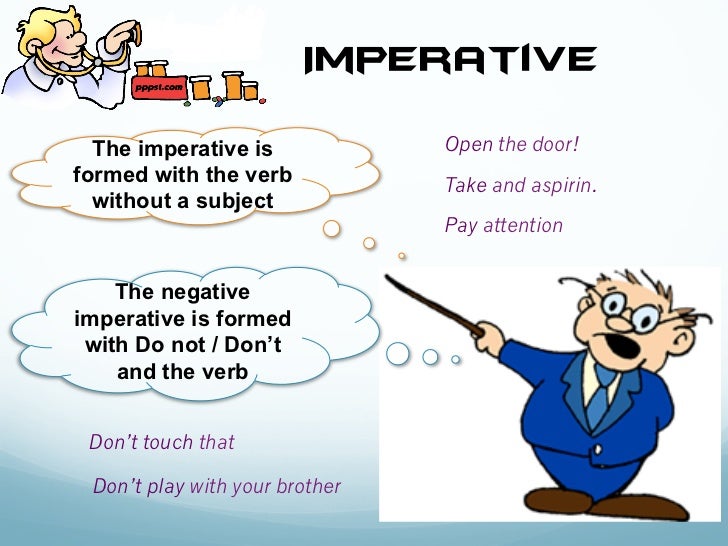Imperative sentences are requests, suggestions, advice, or commands.
Imperative sentences often appear to be missing subjects and use a verb to begin the sentence. In fact, the subject is the person listening, or the audience. In other words, if an imperative sentence is directed at you, then you are the subject of that sentence.
Our opening example sentences are all written in a positive format, meaning that the verb is in the affirmative. The affirmative encourages an action or directs that something happen. The following sentences are still imperative sentences, but they are negative instead, indicating that something should not happen or is not desired.
- Don't eat my strawberries.
- Don't wait for my answer.
- Don't text me.
A negative could be shortened into the simple one-word statement of Don't. Imagine for instance, this conversation:
Person A: I want to give you some strawberries.
Person B: Don't. I'm allergic to them.
Questions
What does this pair of imperative sentences have in common?
- Send me that email, will you?
- Pass the potatoes, won't you?
Both use tag questions added to the end. These are still imperative sentences, but they end up with a little extra emphasis in the form of a question. You're most likely to hear these in conversations.
Tag questions added to imperative sentences are not the same as typical interrogative sentences. Interrogative sentences ask a question but do not have the same format for their request, suggestion, or command that imperatives do.
Let's look at which of the following are interrogative versus imperative:
- Take me out to the ballgame, won't you? (imperative)
- Will you go to the ballgame with me? (interrogative)
- Park in the lot nearby, will you? (imperative)
- Can you park nearby? (interrogative)
Watch Video:
Reinforces what was learned:
References:


No hay comentarios.:
Publicar un comentario